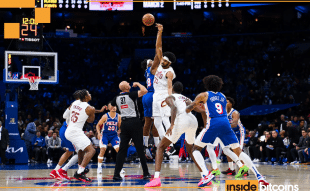Online sweepstakes casinos face mounting pressure as more states across the US take decisive regulatory action against these controversial gaming platforms. What started as localized efforts has evolved into a nationwide movement that could permanently reshape the industry. Let’s dive into this rapidly evolving environment, explore how we got here, and examine where things might be headed.
Regulatory Crackdown Intensifies Across Multiple States
The sweepstakes sector is finding itself increasingly under fire as Montana prepares to potentially become the first state to implement a comprehensive ban. Senator Vince Ricci’s Senate Bill 555 has made remarkable progress, receiving overwhelming approval in both chambers of the legislature. With an impressive 88-11 vote in the House following Senate passage, the bill now awaits only Governor Greg Gianforte’s signature to become law.
SB 555 takes direct aim at gray market operators by expanding the definition of illegal gambling to encompass products like sweepstakes and cryptocurrency gaming platforms. The consequences for violators would be severe – fines up to $50,000 and potential prison sentences reaching 10 years. This aggressive stance has already prompted some industry players to reconsider their presence in Montana, with sweepstakes giant VGW (operator of Luckyland Slots and Chumba Casino) announcing its exit from the state.
Meanwhile, New York legislators are pursuing their own crackdown through parallel legislation. Assembly Bill 6745, championed by Assemblymember Carrie Woerner, recently received unanimous support from the Assembly Racing and Wagering Committee. Its companion measure, Senate Bill 5935 sponsored by Senator Joseph Addabbo, has advanced to its third reading, setting up a potential final vote before the current legislative session concludes on June 12.
The Empire State’s proposal would categorize sweepstakes games as online contests utilizing dual virtual currency systems – typically “gold” for gameplay and “sweep” coins exchangeable for cash or cash-equivalent prizes. The proposed legislation would impose substantial penalties ranging from $10,000 to $100,000 per violation, with regulatory oversight shared between the New York State Gaming Commission, Attorney General’s office, and state police.
This regulatory pressure has already triggered market responses, with platforms like Real Prize ceasing operations in New York and leaving users unable to access their winnings. Other states including Louisiana, Illinois, Maryland, and Connecticut are exploring similar restrictions, though efforts in Mississippi and New Jersey have faced significant resistance.
Understanding How Sweepstakes Operate in Legal Gray Areas
Sweepstakes casinos have thrived by exploiting legal ambiguities in numerous jurisdictions. These platforms typically operate through a system that technically avoids classification as traditional gambling by using virtual currencies rather than direct cash wagers.
The typical model employs two separate currencies: one purchased directly (like “gold coins”) used for gameplay with no monetary value, and another (such as “sweep coins”) awarded as a “free” bonus with purchases that can be redeemed for real prizes or cash. By structuring their operations this way, these platforms have managed to operate in regions where conventional online gambling remains prohibited.
Current Montana law exemplifies these loopholes – it doesn’t explicitly ban online casino games using digital assets like cryptocurrency for wagering. Similarly, sweepstakes using virtual tokens as currency have capitalized on this regulatory gap. The pending legislation in both Montana and New York aims specifically to close these loopholes by broadening gambling definitions to include these alternative mechanisms.
Industry advocates, including the Social and Promotional Games Association (SPGA), have criticized legislative efforts as overreaching and lacking clarity. They argue that subsequent amendments to bills like New York’s SB 5935 have exacerbated rather than improved the situation, turning “what was already a disaster into a catastrophe”.
The Global Regulatory Landscape for Sweepstakes
Sweepstakes regulations vary dramatically worldwide, creating a complex patchwork of rules operators must navigate. In Canada, promotions must comply with both federal and provincial laws. The federal Competition Act governs advertising aspects, mandating that contests offer entry without purchase requirements, clearly disclose official rules, and require winners to answer a skill-testing question. This last requirement helps avoid classification as a lottery under Canadian law.
Quebec has historically maintained stricter contest regulations through the Régie des alcools, des courses et des jeux (RACJ), requiring contest filing, fees based on prize values, and security deposits for certain promotions. These requirements have made Quebec a uniquely challenging jurisdiction for sweepstakes operators.
Australia distinguishes between skill-based competitions and chance-based competitions, with the latter requiring permits in certain territories including New South Wales, South Australia, and the Australian Capital Territory. Permit requirements vary by region – South Australia only requires permits when prize values exceed AU$5,000, while ACT exempts online-only promotions with no physical presence. Permit costs range from $80 to $216 or more depending on prize value and territory.
In the European Union, regulations differ substantially by country. The Netherlands, for example, allows promotional games of chance with specific limitations – large sweepstakes cannot exceed €100,000 in total prizes and are limited to once per year per service, product, or organization with a maximum of 20 sweepstakes. Smaller promotions face a €4,500 prize value limit. Non-compliance can result in fines up to €780,000 or 10% of the previous year’s turnover.
Bosnia and Herzegovina presents another unique regulatory approach, permitting prize contests and games but requiring organizers to pay 6% of the total prize value to local humanitarian organizations in advance. The Srpska Republic imposes a 10% fee on prize fund values and limits organizers to running contests twice yearly with a maximum duration of 30 days each.
In the United Kingdom, the Gambling Act 2005 (amended 2015) generally prohibits organizing sweepstakes without a license. However, the legislation provides exceptions for workplace lotteries, recognizing their social nature and limited scope.
Historical Evolution of Sweepstakes
Sweepstakes originated as a form of lottery tied directly to product sales. This marketing approach allowed companies to promote their goods while offering consumers the excitement of potential prizes. As regulatory frameworks evolved, so did sweepstakes structures, increasingly emphasizing “no purchase necessary” alternatives to avoid gambling classification.
The United States saw significant regulatory refinement as the Federal Communications Commission (FCC) and Federal Trade Commission (FTC) adjusted broadcasting laws specifically to address lottery-like promotions. These changes established the modern framework distinguishing legitimate sweepstakes from illegal gambling operations.
The digital revolution transformed sweepstakes dramatically, enabling online platforms to reach global audiences while introducing new operational models. Virtual currencies, particularly dual-currency systems, emerged as a cornerstone of modern sweepstakes casinos – allowing operators to technically separate gameplay from prize redemption while maintaining the gambling-like experience.
Technology Reshaping the Sweepstakes and Gambling Landscape
The gambling world is undergoing remarkable transformation through technological innovation, with several key trends reshaping how consumers interact with sweepstakes and related platforms.
Blockchain technology and cryptocurrency integration represents perhaps the most disruptive development. These technologies enhance transparency and security by creating tamper-proof, verifiable transaction records – particularly valuable in an industry where trust remains paramount. Cryptocurrency payments provide additional benefits including anonymity, reduced intermediary dependence, and faster transactions. This approach particularly appeals to younger, tech-savvy demographics seeking novel gambling experiences.
Virtual Reality (VR) and Augmented Reality (AR) are revolutionizing immersion levels in online gambling environments. VR technology enables users to experience simulated casino environments from home, interacting with games and other players in three-dimensional space. AR applications overlay digital elements onto real-world settings, enhancing physical gambling experiences with interactive digital components.
Artificial Intelligence (AI) and machine learning capabilities are transforming operational aspects of the industry. These technologies enable personalized player experiences through customized game recommendations and targeted promotional offers. They also optimize back-end operations, enhance security protocols, and support responsible gambling initiatives through pattern recognition of problematic behaviors.
Market Growth and Industry Projections
Despite regulatory headwinds in certain regions, the broader iGaming market continues experiencing substantial growth globally. The market reached approximately $70 billion in 2022 before surging to $85.62 billion by late 2023. Current projections suggest continued expansion to $97 billion in 2024 and potentially $125.6 billion by 2027. This represents a compound annual growth rate (CAGR) of 18.92% from 2022-2023, expected to stabilize around 6.47% from 2024-2029.
User base metrics reinforce these projections, with online gambling participants anticipated to reach 243.2 million by 2028 and 290.5 million by 2029. More ambitious revenue forecasts suggest the market could potentially surpass $195.12 billion by 2031 as consumer interest continues climbing and platforms introduce additional innovations.
The social casino games segment specifically demonstrates remarkable resilience despite regulatory challenges. This market reached USD 7.73 billion in 2024 and is projected to expand to USD 13.23 billion by 2033, reflecting a 6.15% CAGR over the forecast period. These platforms differentiate themselves by emphasizing player social interaction as their primary appeal.
Within the broader ecosystem, online casinos represent a particularly dynamic segment. Valued at $17.13 billion in 2023, this segment projects 12.4% CAGR, potentially more than doubling to $38.66 billion by 2030. When considered alongside traditional casino operations, the combined market estimates reach $296.31 billion in 2024, with potential growth to an astonishing $1,107.22 billion by 2034 at a 14.1% CAGR.
Industry Responses and Adaptation Strategies
As regulatory pressures intensify, sweepstakes operators are employing various strategies to navigate this changing landscape. Some companies have proactively exited markets where legislation appears imminent – as evidenced by VGW’s withdrawal from Montana and Real Prize’s departure from New York. This approach minimizes legal exposure but creates complications for existing users, particularly regarding prize redemption.
Other operators are exploring operational adjustments to maintain compliance while preserving core business models. This might include modifying virtual currency systems, enhancing no-purchase alternative methods, or restructuring promotional language to avoid regulatory triggers. The effectiveness of these approaches remains uncertain as legislators increasingly target the fundamental mechanisms underlying sweepstakes casinos.
Industry associations like the Social and Promotional Games Association (SPGA) have intensified advocacy efforts, highlighting economic contributions, promoting responsible gaming practices, and working to distinguish legitimate operators from bad actors. These organizations argue that overly broad legislation could eliminate legitimate businesses while failing to address underlying consumer protection concerns.
Some gaming companies are pivoting toward fully regulated markets, securing appropriate licensure where available rather than continuing operations in legal gray areas. This approach offers long-term stability but introduces significant compliance costs and operational constraints that fundamentally alter business models.
The Future of Sweepstakes in a Changing Regulatory Environment
The sweepstakes industry stands at a pivotal crossroads as regulatory frameworks continue evolving nationwide. The outcomes in states like Montana and New York may establish precedents influencing how other jurisdictions approach these operations. If these bans succeed and survive potential legal challenges, we could witness accelerated regulatory actions across additional states.
Technological innovation will likely continue reshaping both regulated and unregulated gambling sectors. Advances in blockchain verification, AI-driven consumer protection, and immersive experiences through VR/AR may address some regulatory concerns while creating new challenges for oversight bodies. This technological arms race between regulators and operators will remain a defining industry characteristic.
Market consolidation appears increasingly probable as regulatory pressures mount. Smaller operators lacking resources for compliance, legal defense, or market pivots may exit the industry entirely, while larger entities with diversified portfolios could absorb market share through acquisitions or organic growth in remaining viable markets.
Consumer protection considerations will continue influencing regulatory approaches, with legislators emphasizing addiction prevention, financial safeguards, and transparent operations. How effectively the industry addresses these concerns may ultimately determine whether sweepstakes casinos find sustainable regulatory accommodation or face comprehensive prohibition.
Related News
- New York’s Sweepstakes Ban Legislation: Potential Impacts on Small Business Community and Gaming Industry
- Growing Political Pressure Amid Delays in New York Casino Licensing
- Gaming Industry Boosts Spending on Responsible Gaming Efforts Amid Growing Commitment
- New York Introduces Stricter Gambling Ad Regulations with Addiction Warnings


